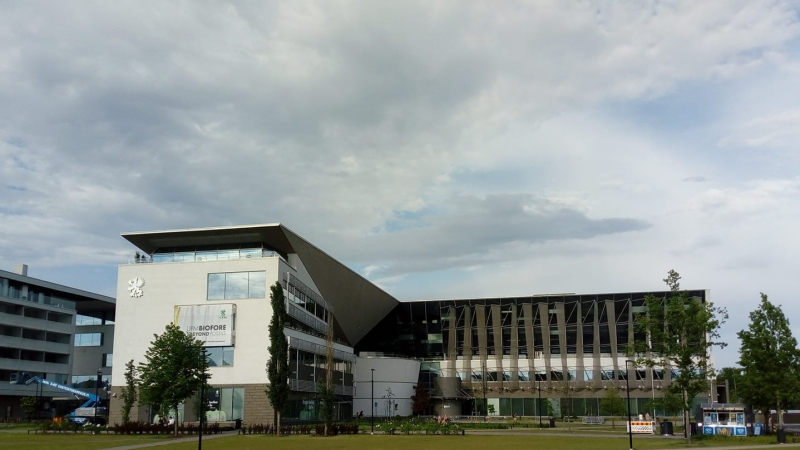Company – On record
This profile is no longer actively maintained, with the information now possibly out of datenature@banktrack.org

Company – On record
This profile is no longer actively maintained, with the information now possibly out of datenature@banktrack.org
Why this profile?
In 2017 UPM announced its plans to build a new large pulp mill in Uruguay. These plans are a cause for concern due to the impacts that the additional plantations will have, the impacts of the effluents that will be discharged in the relatively small Rio Negro and the social impacts, including strengthening the rural exodus. UPM signed a controversial agreement with the government of Uruguay which action groups have challenged as being unconstitutional, due to the high investment commitments made by the government, without any approval by congress.
| Sectors | Pulp, Paper and Paperboard Mills |
| Headquarters |
|
| Ownership |
listed on Helsinki Stock Exchange
UPMs shares are held almost 100% as free float. In 2018, the largest shareholder was Varma Mutual Pension Insurance Company, with 2.29% of the shares.
|
| Subsidiaries |
|
| Website | https://www.upm.com/ |
UPM-Kymmene is a Finnish company which operates in the sectors of pulp and paper, timber and energy. It was created in 1996 from the merger of Kymmene with Repola Ltd and its subsidiary United Paper Mills. It subsequently expanded its operations to China and Uruguay, among others. It now owns four pulp mills with a total pulp capacity of 3.7 million tonnes. Three of these mills are located in Finland, one in Uruguay (Botnia). In China the company owns the Changsu paper mill. UPM has paper mills in Austria, Estonia, Finland, France, Germany, UK, Russia, Uruguay and in the USA. UPM also owns 574,000 hectares of certified forest in Finland, 76,030 ha of forest land Minnesota USA as well as 255,000 hectares of plantation forests in Uruguay. It further sources wood from 12 other countries. The company has done a major rebranding effort to transform from paper and pulp to the “bioeconomy” by renaming its business sector of pulp and forestry as biorefinery and by adapting the slogan “The Biofore Company”.
Impact on human rights and communities
UPM has been involved in several controversies and conflicts:
The Fray Bentos (ex-Botnia) pulp mill in Uruguay was the target of massive protests and caused a diplomatic dispute between Uruguay and Argentina. This mill was inaugurated in 2007, under massive protests from residents and environmental groups and faced huge opposition from the Government of Argentina, which lead to the escalation of a bilateral conflict between two otherwise friendly neighbours. Local residents feared for the pollution of their drinking water and Argentina complained about the pollution of one of its prime tourist beaches, located just opposite the mill. Botnia failed to consult or address the concerns of local stakeholders and affected communities. It downplayed the impacts of the pollution. In 2009 UPM bought the operations from Metso-Botnia in Uruguay, including the Fray Bentos mill.
Until 2009, UPM’s Changsu paper mill in China was supplied with pulp from APRIL in Indonesia. But following widespread criticism of the Indonesian pulp industry, UPM announced that it would stop sourcing pulp from APRIL and instead source from its Fray Bentos pulp mill in Uruguay.
In 2017 UPM signed an agreement with the Republic of Uruguay for the construction of a new pulp mill in Paso de los Toros. In the agreement, Uruguay commits to a series of serious legislative changes and investments worth between USD one and 1.8 billion, without any commitment from UPM’s side, apart from deciding in 2020 if it will invest in a new pulp mill in Paso de los Toros. Critics have pointed out that the agreement is not beneficial for the people of Uruguay, that it was signed before an Environmental Impact Assessment was made, and that it is not legal, as it was not approved by congress. UPM will decide in 2020 if it will proceed with its plans. The EIA for this project does not cover the impact of the plantations that will be required to feed the mill. There are also strong concerns about the pollution of the relatively small Rio Negro with the effluents of the mill. Other problems include water shortage, impact of migrant workers, health impacts, among others. For more details see the Paso de los Toros Dodgy Deal pofile.
Labour rights The MoU that UPM signed in 2017 with the government intends to limit the power of unions and the right of workers to strike. A report by WRM from 2008 stresses the importance of unions, as it found that working conditions in the pulp sector had improved since 2005, when a new government came into power which allowed workers to form unions.
Impact on nature and environment
Conversion of natural grasslands into plantations UPM’s plantations in Uruguay are mostly established on natural grasslands. Though this does not lead to deforestation, which is a common problem in the sector, it does cause the conversion of a natural habitat into monoculture plantations, which impact the biodiversity of the ecosystem. One of the problems associated with the plantations in Uruguay is an increase in wild boars, foxes and venomous snakes. For sheep farmers this is a serious problem. The snakes have also killed pigs, calves, cows and even horses.
Water shortage UPM’s plantations for the Botnia mill in Uruguay have caused water shortage, which has seriously impacted communities in rural Uruguay. It is expected that the plantations for the Paso de los Toros mill will have similar impacts.
Logging of high-conservation value forests in Finland Though UPM has received recognition by the Carbon Disclosure Project for its efforts of deforestation-free supply chain, the company has been involved in the logging of high-conservation value forests in Finland, contributing to the deep crisis of Finland’s forests, according to Greenpeace. Several endangered habitats are located within UPMs forests, which are at risk of being logged. For example, in 2016 UPM was criticised for logging on the island of Ärjänsaari, located in a Natura 2000 area with repeated demonstrations against the logging, in 2015 for logging in Haariko between two protected areas which provide critical habitat for endangered species.
Between 2011 and 2017 UPM-Kymmene was funded through corporate loans and underwriting totalling USD 576 million. See below for a specified overview of the financial institutions involved.
In March 2020 a syndicate of fifteen banks financed a EUR 750 million credit facility, maturing in March 2025, for UPM-Kymmene (UPM-Kymmene press release). See below for more details.
In November 2020, UPM-Kymmene applied for the listing of its first ever green bond of EUR 750 million (UPM press release), followed by issuing a EUR 500 million green bond on 15 March 2021 (UPM press release). Both listings are part of UPM's Euro Medium Term Note (EMTN) programme and its Green Finance Framework, which could add up to EUR 3 billion in the future.
Applicable norms and standards
2023
Nov 21 2023 | Two spills at UPM controversial plant
In October 2023, the largest chemical spill in the history of Uruguay happened at UPM's controversial plant in Paso de los Toros, Uruguay. UPM's second giant mill started its operation in June 2023, but Uruguayans didn’t have to wait longer than two months to witness the mill’s first environmental disaster: a spill of 900 to 1,000 cubic meters of caustic soda. In spite of the claims of the plant’s excellent safety and environmental performance, the accident occurred due to using an inadequate infrastructure. As a result the caustic soda leaked through the subsoil more than 300 metres into a stream, where it killed all the fauna. The stream in turn flows into the Río Negro, the river crossing the country from east to west in the Paso de los Toros mill area.
In response to the spill, 70+ Uruguayan and supporting international organisations wrote an open letter to the Uruguayan government, demanding action. UPM knew about the leak long before it reported about it.
In November, there was another spill at the same plant, due to a break in a pipeline.

